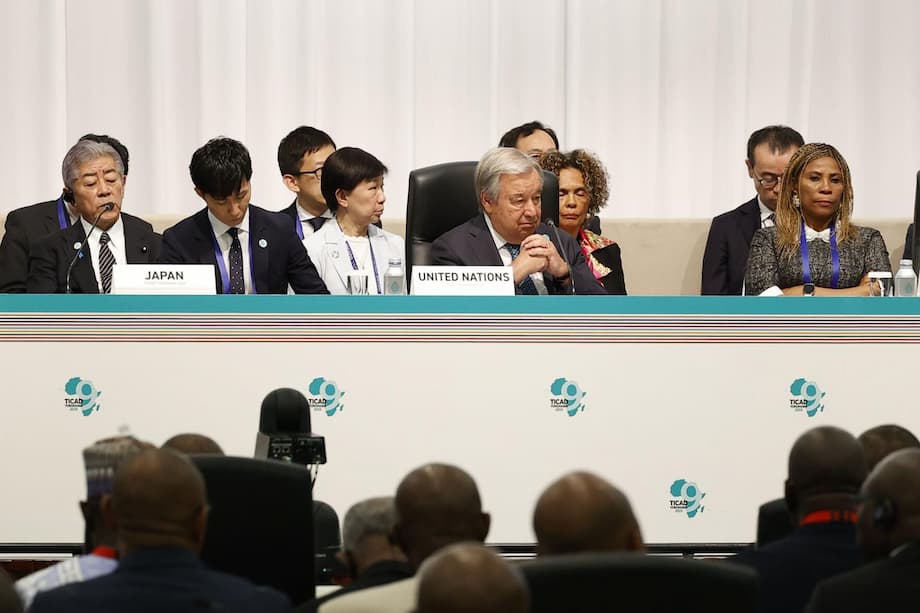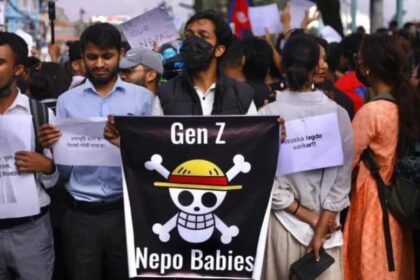Japan’s Commitment to Africa: A Beacon Amidst Declining Global Aid
As the world witnesses a marked reduction in development aid from many Western nations, Japan’s steadfast support for Africa stands out as a critical pillar for the continent’s progress. This commitment was underscored at the latest Tokyo International Conference on African Development (TICAD), where United Nations Development Programme (UNDP) officials and African leaders highlighted the significance of Tokyo’s ongoing engagement. The conference, co-hosted by Japan and the UNDP, has become a symbol of multilateral cooperation and African agency in shaping its own future.
Haoliang Xu, the acting administrator of the UNDP, emphasized in an exclusive interview that Japan’s assistance is especially vital now, as multilateralism faces global headwinds and many of Africa’s most vulnerable nations are at risk of being left behind. Xu noted,
“Japan’s assistance through TICAD is really significant at a time when multilateralism is declining.”
He further pointed to Japan’s focus on developing human resources in artificial intelligence (AI) and digital sectors, which he believes will help create the talent needed for Africa’s new economy and attract more Japanese investment to the continent.
What is TICAD and Why Does It Matter?
Launched in 1993, the Tokyo International Conference on African Development (TICAD) is a unique multilateral forum co-organized by Japan, the African Union, the UNDP, the United Nations Office of the Special Advisor on Africa, and the World Bank. Unlike traditional donor-recipient models, TICAD is structured to promote African ownership, international partnership, and inclusive dialogue. Over the past three decades, it has evolved into a platform that not only channels aid but also fosters trade, investment, and knowledge exchange between Africa and Japan.
TICAD’s format is deliberately inclusive, involving governments, international organizations, private companies, and civil society. This approach reflects Japanese diplomatic values of harmony (wa), consensus-building, and quiet leadership. As noted by analysts, Japan’s engagement is shaped by cultural concepts such as tatemae (public stance) and honne (true intent), which guide its non-confrontational, partnership-oriented approach to African development.
From Aid to Investment: The Changing Landscape
One of the most significant shifts in recent years has been TICAD’s transition from a focus on aid to a broader emphasis on trade, investment, and co-creation. This change aligns with Africa’s own aspirations to move from aid-dependence to self-driven, investment-led growth. Japan’s support now encompasses not only financial contributions but also technology transfer, entrepreneurship support, and capacity building in critical sectors such as digital innovation, green energy, and health.
Japan’s Impact: Concrete Projects and Strategic Partnerships
Japan’s contributions to Africa, channeled through TICAD and implemented by the UNDP and other partners, are both wide-ranging and impactful. Between 2019 and 2021, Japan’s unwavering support enabled the UNDP to deliver much-needed assistance to vulnerable populations across Africa, even as the continent faced the compounded crises of the COVID-19 pandemic, climate change, and regional conflicts.
Key areas of Japanese-funded projects include:
- Peacebuilding and Security: Support for demining in Benin, peacekeeping training in Mali and Togo, and stabilization efforts in South Sudan.
- Economic Recovery and Entrepreneurship: Initiatives to boost economic recovery in the Central African Republic and Nigeria, and support for African startups through the ‘Meet the Tôshikas’ programme.
- Health and Social Protection: Rehabilitation of health infrastructure in Cameroon, vaccine equity through the COVAX programme, and social protection projects in Senegal.
- Governance and Democracy: Electoral support in the Democratic Republic of Congo and Zimbabwe, and efforts to promote free and democratic elections.
Japan’s Green Growth Initiative for Africa, with a $4 billion investment, addresses climate change and supports the continent’s green transition. Additionally, a $130 million facility was launched to combat food insecurity exacerbated by the war in Ukraine, and over $2.5 billion has been pledged to address vaccine shortages and health system gaps.
Strategic Partnerships: AfDB and Private Sector Engagement
The African Development Bank (AfDB) plays a pivotal role in TICAD, collaborating with Japan to mobilize resources and drive transformative projects in energy, transport, health, and climate resilience. The Enhanced Private Sector Assistance (EPSA) framework, launched in 2005, has resulted in billions of dollars in co-financing for African businesses and infrastructure. EPSA6, the latest extension, is expected to be signed at TICAD9, further deepening this partnership.
Japan’s engagement with the private sector is also evident in initiatives like the Africa Investment Forum and the Japan Investment Roadshow, which connect African startups and entrepreneurs with Japanese investors and companies. These efforts are designed to unlock Africa’s innovation potential and create sustainable jobs for its rapidly growing youth population.
Empowering Africa’s Youth: The Heart of Sustainable Development
With Africa projected to account for 25 percent of the world’s population by 2050, investing in youth is seen as both a necessity and an opportunity. TICAD and its partners have prioritized youth development, skills training, and entrepreneurship as central pillars of their strategy. The African Young Women Leaders Fellowship Programme, supported by the UNDP, exemplifies this focus on nurturing the next generation of leaders.
Recent thematic events, such as the ‘Africa-Japan Youth Drive: The Co-creation of the Future We Want,’ have brought together young people from both regions to discuss proposals for TICAD9 and advocate for greater youth involvement in decision-making. These forums emphasize mentorship, people-to-people exchanges, and the importance of systems that incorporate youth voices at every level.
Ms. Ahunna Eziakonwa, UNDP Assistant Administrator and Regional Director for Africa, highlighted the continent’s demographic dividend, stating,
“Africa’s greatest wealth is its people, with the youngest population globally. Engaging Africa’s youth and supporting skills development are crucial for future progress.”
Digital Transformation and AI: Building the Economy of Tomorrow
Japan’s initiatives in digital skills and artificial intelligence are particularly noteworthy. By investing in human resource development in these sectors, Japan aims to equip African youth with the tools needed for the new digital economy. This not only addresses immediate employment challenges but also positions Africa as a future hub for innovation and technology-driven growth.
UNDP’s ‘Meet the Tôshikas’ programme, supported by Japan’s Ministry of Economy, Trade, and Industry, is a prime example. The initiative connects African startups with Japanese investors, providing funding, mentorship, and access to Japan’s experience in ecosystem development. The recent Japan Investment Roadshow saw six African startups engage with over 30 Japanese investors and business leaders, sparking new partnerships and knowledge exchange.
Multilateralism, African Ownership, and the Future of TICAD
One of TICAD’s defining features is its emphasis on African ownership and multilateral cooperation. The process is designed to ensure that African countries set their own development priorities, with Japan and other partners providing support in alignment with these goals. This approach is reinforced by regular high-level consultations, such as the recent meeting between the UNDP and the African Diplomatic Corps in Japan, where priorities for TICAD9 were discussed.
Key themes for the upcoming TICAD9, scheduled for August 2025 in Yokohama, include:
- Post-pandemic recovery and resilience
- Trade, investment, and industrialization
- Agriculture and food security
- Education, technology, and digital transformation
- Youth and women’s empowerment
- Climate change and sustainable energy
Ms. Eziakonwa articulated the vision for TICAD’s future, emphasizing the need for continuity, stronger public-private partnerships, and a focus on accountability and results. She noted,
“TICAD should remain African-owned, maintain continuity, link to global development frameworks, strengthen accountability, and promote public-private partnerships.”
Challenges and Opportunities: Navigating a Complex Landscape
Despite the progress made, Africa faces significant challenges. The continent needs an estimated $1.3 trillion annually to achieve the Sustainable Development Goals (SDGs), but restrictive financial systems and speculative credit ratings make attracting investment difficult. Many African economies pay billions in excess interest due to poor credit ratings, underscoring the need for global financial reform.
Persistent underinvestment in infrastructure, especially in energy, remains a major hurdle, with 600 million Africans lacking reliable electricity and 900 million without access to clean cooking. Addressing these gaps requires not only financial resources but also innovative partnerships and technology transfer—areas where Japan’s expertise and commitment can make a difference.
Diplomatic complexities also arise, as seen in debates over the participation of certain entities at TICAD meetings. Japan’s approach, rooted in principles of harmony and neutrality, seeks to navigate these challenges while maintaining the forum’s focus on development and partnership.
In Summary
- Japan’s continued aid to Africa, especially through TICAD, is crucial as global development assistance from other nations declines.
- TICAD has evolved from a donor-recipient model to a multilateral platform emphasizing African ownership, partnership, and investment-led growth.
- Japan’s support spans peacebuilding, economic recovery, health, digital innovation, and climate resilience, with a strong focus on youth and entrepreneurship.
- Strategic partnerships with the AfDB, UNDP, JICA, and the private sector have mobilized billions in co-financing and technical assistance.
- Empowering Africa’s youth and investing in digital skills are central to building a sustainable, innovation-driven economy.
- TICAD9 in 2025 will focus on post-pandemic recovery, trade, industrialization, food security, and climate change, with youth and women’s empowerment at the core.
- Challenges remain, including infrastructure gaps and financial barriers, but Japan’s principled, partnership-oriented approach offers a model for effective international cooperation.












